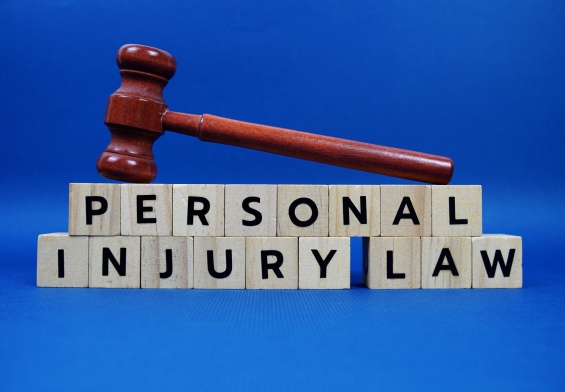A traumatic brain injury (TBI) can change your life in an instant. Their long-term effects, like memory loss, speech difficulties, cognitive impairment and behavioral changes can be devastating to you and your loved ones. That’s why you need a TBI lawyer to make you whole in the wake of tragedy.
According to the CDC, more than 69,000 people died from TBI-related causes in 2021. Over 2.2 million people visited emergency rooms for brain injury care each year. These numbers reflect a widespread and serious problem, especially when the injury is caused by someone else’s negligence.
Proving that negligence caused your brain injury is a complex, difficult process. An experienced TBI lawyer can help gather evidence, build strong legal cases. They’ll fight tooth and nail to make sure you can handle your new, lifelong challenges.
Legal action isn’t just about money. It’s about holding the right people accountable.
What Is a Traumatic Brain Injury (TBI)?
A traumatic brain injury disrupts how the brain functions. It usually results from a sudden blow, jolt, or penetrating wound to the head. TBIs are commonly classified into three categories based on the nature of the injury, duration of unconsciousness, and symptoms.
Not all TBIs are immediately obvious, and their effects can vary from person to person. More than 5.3 million Americans are living with long-term disabilities caused by brain injuries.
These injuries often interfere with memory, judgment, emotional regulation, and the ability to work or care for oneself. The resulting neurological damage can create complicated challenges that need specialized legal expertise.
Types of TBIs and Their Legal Relevance
Mild TBI (Concussion):
- Symptoms: Headaches, dizziness, nausea, temporary confusion, sensitivity to light/noise, and short-term memory issues. Loss of consciousness may last a few seconds or not occur at all.
- Impact: While symptoms often resolve within weeks, some individuals experience “post-concussion syndrome.” That can disrupt concentration, mood, and sleep for months.
- Legal relevance: Concussion lawsuits can be difficult to prove without imaging evidence. A TBI lawyer needs clinical evaluations, symptom journals, and expert witness testimony to show the injury is real and caused by the defendant.
Moderate TBI:
- Symptoms: Loss of consciousness for 30 minutes to 24 hours, confusion lasting days or weeks, cognitive impairments, mood changes, and possible physical disabilities.
- Impact: Victims often need extended rehabilitation and may be unable to return to previous work or daily routines. Some cognitive and behavioral changes can be permanent.
- Legal relevance: Documentation from hospitalization, neurologists, and rehabilitation specialists strengthens the case. Personal injury attorneys usually need to prove how the injury has affected the victim’s earning ability and quality of life.
Severe TBI:
- Symptoms: Loss of consciousness for more than 24 hours, significant neurological impairment, profound cognitive or physical disabilities, or even coma.
- Impact: These injuries often lead to permanent loss of independence, requiring full-time care or assisted living. In most cases, this puts huge emotional and financial strain on the victim and family.
- Legal relevance: Severe TBIs often involve larger brain injury settlements due to the life-altering consequences. A TBI lawyer must coordinate medical experts, life care planners, and economists to estimate long-term costs and prove the severity of the damage.
Understanding the differences between mild, moderate, and severe TBIs helps build a legal case. Each type presents unique challenges.
What Must Be Proven in a TBI Case?
To succeed in a traumatic brain injury lawsuit, your TBI lawyer must prove that another party’s negligence caused your injury. This requires demonstrating four key legal elements that form the foundation of any personal injury claim.
The Four Legal Elements of a TBI Case
- Duty of Care: The defendant had a legal obligation to act safely and reasonably. For example, a driver must follow traffic laws and operate their vehicle responsibly.
- Breach of Duty: The defendant failed to meet the duty of care. A driver running a red light or a store owner ignoring a spill on the floor are good examples of this.
- Causation: There must be a direct link between the breach and the injury. For instance, a fall caused by a broken stair rail results in a diagnosed concussion.
- Damages: The victim must have suffered actual harm. This could include medical expenses, cognitive therapy, lost income, or permanent changes in quality of life.
Proving causation is often the most difficult part of TBI cases. Many TBIs, especially if they’re mild, don’t show up clearly on imaging.
Thus, the lawyer needs a strong combination of medical records, expert witness testimony, and sometimes neuropsychological evaluations. All these demonstrate a clear relationship between the incident and the brain injury.
Another key factor is meeting the legal standard for scientific evidence in court. Under the Daubert standard, expert testimony must be both reliable and relevant.
Judges check whether the expert’s methods are scientifically sound. Every TBI case needs solid documentation and testimony that can withstand legal scrutiny.
What Types of Evidence Do TBI Lawyers Use?
Building a strong TBI case demands comprehensive evidence to prove how the injury occurred, how it has affected the victim, and why the defendant should be held responsible. TBIs often involve invisible or delayed symptoms, so documentation and expert input are more important.
Common Types of Evidence in TBI Lawsuits
- Medical Imaging and Records: MRIs, CT scans, and PET scans are used to detect bleeding, swelling, or structural damage. Even if scans appear normal, treatment records and doctor notes can show signs consistent with a TBI.
- Clinical Evaluations and Neuropsychological Testing: These help assess changes in memory, concentration, mood, or cognitive function that may not show up in imaging. They establish a baseline of cognitive impairment and neurological damage.
- Symptom Journals and Daily Logs: TBI lawyers often encourage clients to keep detailed notes on headaches, dizziness, confusion, sleep disruptions, and emotional changes. This paints a clear picture of how the injury affects their life.
- Eyewitness and Family Testimony: Friends, coworkers, or relatives can provide insight into changes in personality, speech, or behavior. This adds human context to clinical data about the victim’s condition.
- Expert Witness Testimony: Neurologists, neuropsychologists, and rehabilitation specialists are often brought in. Their role is important in meeting admissibility standards under the Daubert rule and explaining complex neurological damage to juries.
- Accident and Incident Reports: Police records, workplace injury reports, or surveillance footage help establish how the injury occurred. Accident reconstruction experts may be needed to prove whether negligence or medical malpractice played a role.
Each piece of evidence supports a different part of the claim. Medical imaging can prove the initial impact, and family testimony can be instrumental in documenting the long-term consequences. A personal injury attorney’s job is to gather and organize this material into a clear, persuasive case.
How Do TBI Lawyers Meet the Daubert Standard?
In traumatic brain injury cases, expert witness testimony is often the linchpin of the claim. But courts don’t automatically accept every expert opinion and testimony. They use the Daubert standard, named after the Supreme Court’s 1993 decision in Daubert v. Merrell Dow Pharmaceuticals.
What is the Daubert Standard?
The Daubert standard is a legal rule that governs the admissibility of expert scientific testimony in federal courts and many state courts. It requires judges to check whether an expert’s methods are scientifically valid and properly applied to the facts of the case. It places the burden to demonstrate an expert’s methods are sound on the TBI lawyer.
This ensures that only evidence based on sound science is used to influence the outcome of a trial. Concussion lawsuits emphasize this, as the signs of neurological damage might be limited, or absent.
The Five Daubert Factors Used to Test Expert Testimony
- Testability: Can the theory or technique be tested through scientific methods?
- Peer Review and Publication: Has the method been reviewed and published in reputable medical or scientific journals?
- Error Rate: Is there a known or potential error rate associated with the method?
- Standards and Controls: Are there established standards for how the method is applied?
- General Acceptance: Is the method widely accepted by experts in the relevant scientific or medical community?
Meeting these criteria requires careful planning. A qualified TBI lawyer works closely with neurologists, neuropsychologists, and other experts. They ensure their findings are credible and admissible in court.
The professionals they choose need strong academic or clinical credentials. They also need to use evidence-based testing tools, and peer-reviewed research to back up their conclusions. Ultimately, the Daubert standard becomes an opportunity. One a personal injury attorney can use to showcase the strength and validity of their client’s case.
What Are Common Causes of TBI in Lawsuits?
Traumatic brain injuries can happen in various situations. When they result from someone else’s negligence, they often become the subject of a personal injury lawsuit. To assign liability and determining what evidence is needed, you need to know how the injury occurred.
Frequent Causes of TBI in Legal Claims
- Falls: According to the CDC, falls account for nearly half of all TBI-related hospitalizations. These injuries often occur on unsafe staircases, slippery floors, or poorly maintained walkways.
- Motor Vehicle Accidents: Sudden impact, rollover crashes, or even minor collisions can cause a person’s brain to shift violently inside the skull. TBIs from car, motorcycle, or truck accidents are a major source of litigation, particularly when another driver was at fault.
- Sports Injuries: Contact sports like football, hockey, and soccer can lead to serious brain trauma, especially when there’s improper supervision or faulty safety equipment. These concussion lawsuits may involve schools, sports leagues, or product manufacturers.
- Assault or Domestic Violence: Intentional acts of violence, including shaken baby syndrome or blunt force trauma in domestic disputes, can result in serious TBIs. While these cases often involve criminal charges, victims may also pursue civil lawsuits for brain injury settlements.
- Workplace Accidents: TBIs that occur in construction zones, warehouses, or industrial settings often involve unsafe conditions, lack of training, or OSHA violations. In some cases, third-party contractors or equipment manufacturers may be held liable.
- Medical Malpractice: Surgical errors, medication mistakes, or failure to diagnose can result in brain injuries. Medical malpractice cases involving TBIs need specialized expertise to prove that the healthcare provider’s actions directly caused the neurological damage.
Each scenario introduces different types of defendants, insurance coverage issues, and legal complexities. A TBI lawyer identifies the cause early on to tailor the case strategy. It impacts everything from the types of experts to involve, to the evidence needed to prove negligence and causation.
How Do Lawyers Prove Long-Term Impact of a TBI?
Traumatic brain injuries often have effects far beyond the initial accident. For many victims, the physical and emotional consequences evolve over time. Sometimes, they get worse or interfere with daily life in unexpected ways.
Proving these long-term impacts is one of the most important, and most challenging, parts of a TBI case.
TBI lawyers rely on expert evaluations to document long-term effects. Neuropsychologists, neurologists, and rehabilitation specialists assess how the injury has altered the victim’s cognitive abilities, behavior, memory, mood, and even personality.
These evaluations often include standardized testing. They also can be repeated over time to show deterioration or ongoing cognitive impairment.
Besides expert witness testimony, personal injury attorneys also gather evidence from the victim’s day-to-day life. That may include journals kept by the injured person, statements from family members or caregivers, and documentation of missed work or job loss.
To strengthen the case, a TBI lawyer must connect these long-term effects directly to the original injury and prove they weren’t caused by something else. Doing that usually involves ruling out pre-existing conditions, establishing a clear symptom timeline, and showing consistency in medical treatment.
The goal is not just to show that a TBI occurred. It’s also to prove how profoundly it has changed the victim’s life. That takes legal precision, medical evidence, and a clear, compelling narrative.
Why Legal Proof Matters in TBI Lawsuits
Proving a traumatic brain injury case requires a detailed and disciplined approach. A TBI lawyer must weave together medical evidence, expert witness testimony, and personal narratives into a compelling legal argument.
Every case, and injury, is different, but the goal remains the same. Negligent parties need to be held accountable and meaningful brain injury settlements for the victim’s suffering need to be secured.
Whether the TBI is mild or severe, the legal process demands clarity, documentation, and persistence. A skilled personal injury attorney doesn’t just present facts. They translate the invisible toll of neurological damage and cognitive impairment into a case that judges and juries can understand.
If you or a loved one is facing the life-altering effects of a traumatic brain injury, working with an experienced TBI lawyer is one of the most important steps you can take toward recovery and justice.
Resources:
https://supreme.justia.com/cases/federal/us/509/579/




